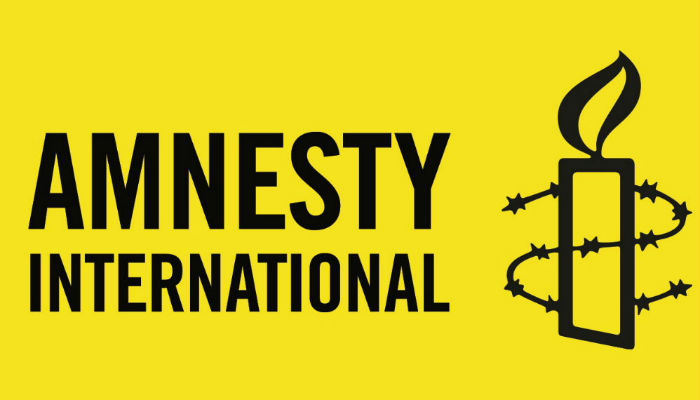Some 40 Kurdish protesters forced their way into Amnesty International’s International Secretariat in London on Friday night, insisting that the NGO release a statement about ongoing prison hunger strikes in Turkey, with the demand that the leader of the Kurdistan Workers’ Party (PKK), Abdullah Öcalan, held in İmralı Prison, be granted regular access to his family and lawyers.
The incident ended with the protesters being removed from the premises by the police. Some who refused to leave were arrested and physically removed, Amnesty announced on its website.
Amnesty also said a security guard was pulled to the ground and trampled underfoot during the events but wasn’t injured to the extent that would require hospitalization.
Beginning on April 24 with a number of representatives from Kurdish organizations who staged a sit-in in the lobby, the protest continued to escalate until Friday night, when 40 protesters forced their way into the building.
“While Amnesty International made it clear to the protesters that this was an unwelcome trespass on our property we were prepared to tolerate their presence and allow them to protest in our reception area if carried out peacefully,” Amnesty said.
“Police were called to the scene as this could no longer be considered a peaceful protest and the safety of staff in the office could no longer be assured.”
A series of hunger strikes by Kurdish deputies began in November 2018, demanding removal of what they call Öcalan’s “isolation,” in reference to the government’s refusal to allow him regular access to his family and lawyers. They were joined by many Kurdish political activists who are behind bars.
“Amnesty International is acutely aware of the hunger strikes and the plight of the hunger strikers,” the NGO said. “However, to report on any human rights violations, Amnesty International has to independently verify allegations and requires consent of the individuals concerned.
In its statement, Amnesty also reiterated its opposition to solitary confinement and small group isolation in Turkey and elsewhere.

